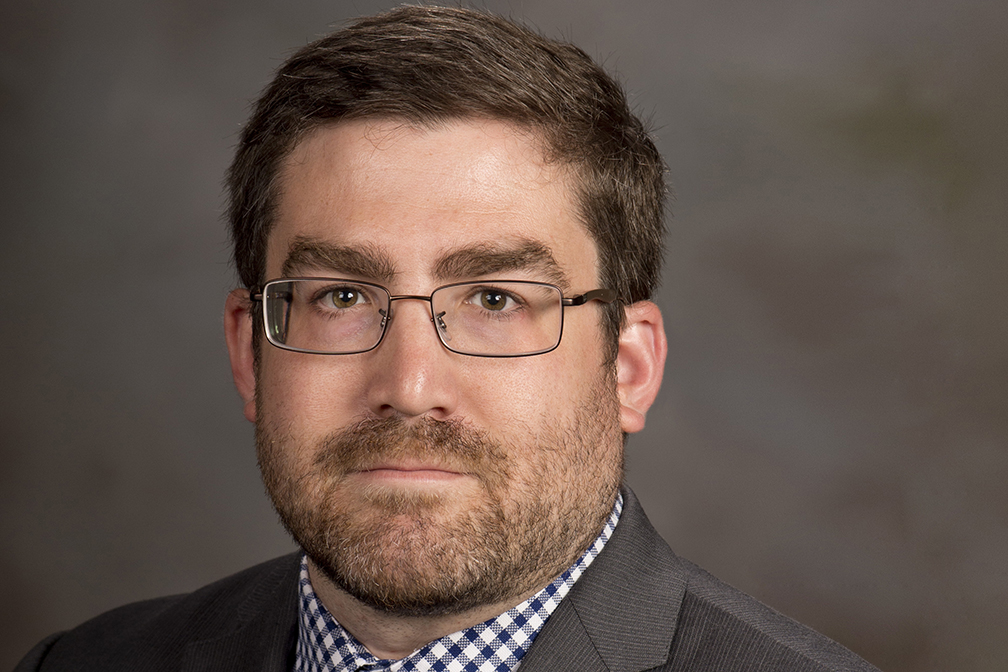National Security Expert Paul Avey Wins Prestigious Fellowship
June 15, 2018

Paul Avey, an assistant professor of political science at Virginia Tech, has received an International Affairs Fellowship for the 2018–2019 academic year.
For more than a half-century, the Council on Foreign Relations has awarded the fellowship every year to a select group of academics, policy-makers, diplomats, and military officials.
The council, a nonprofit think tank specializing in U.S. foreign policy and international affairs, added just nine new core fellows. Avey is the only academic; others work with the Middle East Institute, a consulting firm, or a U.S. Government agency or department, including the Army, the Central Intelligence Agency, the Department of State, the Department of the Treasury, and the National Security Council.
The focus of Avey’s research is principally on nuclear politics, U.S. foreign policy, and international relations theory. He is currently writing a book that explores why countries without nuclear weapons get into conflicts with those that have nuclear weapons. He often serves as a media resource for such topics as the relations between the United States and North Korea.
Avey, who teaches courses in national security and world politics, has published articles in such journals as International Security, Foreign Policy, International Studies Quarterly, and Security Studies. He is also engaged in an ongoing study with the Carnegie Policy Relevance Project at the University of Notre Dame to explore and help bridge the academic-policy gap in security studies.
Prior to joining the Virginia Tech faculty, Avey was a Stanton Nuclear Security Fellow at the Massachusetts Institute of Technology and a research fellow with the Project on Managing the Atom at Harvard University’s Belfer Center for Science and International Affairs.
Avey holds a master’s degree and a doctorate in political science from the University of Notre Dame, a master’s degree in social sciences from the University of Chicago, and a bachelor’s degree in political science and history from the University of Iowa.
“Paul is an impressive scholar who has made significant contributions to a better understanding of how conflicts between countries unfold and, critically, how they might be defused,” said Karen Hult, chair of Virginia Tech’s political science department. “The Council on Foreign Relations fellowship will permit him to deepen his knowledge and analysis of national security decision-making and to share his insights with fellow scholars, policy-makers, and students.”
The Department of Political Science offers majors in political science, international studies, national security and foreign affairs, international relations, and international public policy, in addition to both on-campus and online master’s degree programs. Each year more than 1,100 undergraduates have majors and more than 80 students pursue master’s degrees in the department, which is the largest in the College of Liberal Arts and Human Sciences.





